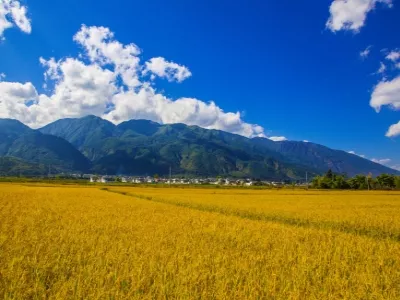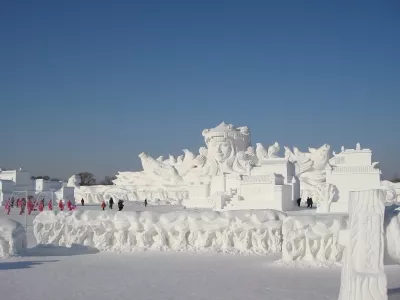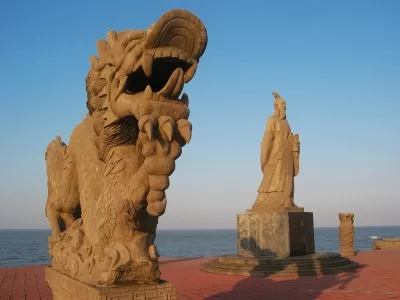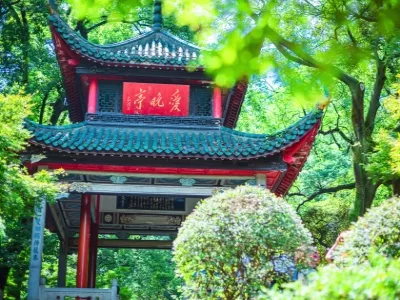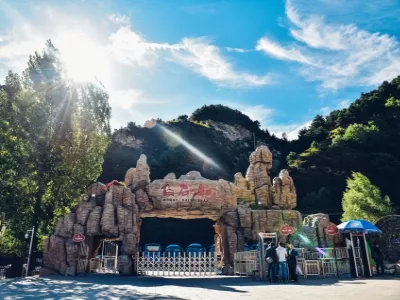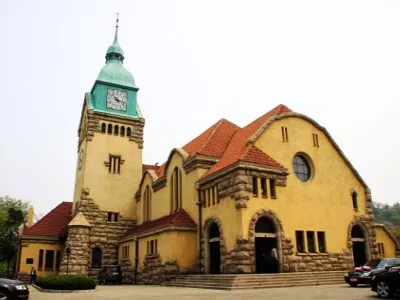Lijiang lies in northwest Yunnan, connecting the Yungui Plateau and Qinghai-Tibetan Plateau. It borders Diqing to the north, Dali to the south, Nujiang to the west, and Sichuan's Liangshan and Panzhihua to the east. It administers the Old Town, Yulong Naxi Autonomous County, Yongsheng County, Huaping County, and Ninglang Yi Autonomous County.
The Jinsha River passes through as the lowest point, while Yulong Mountain, Laojun Mountain, and Xiaoliang Mountain form the area's backbone. Famed sights include Tiger Leaping Gorge, Lijiang Old Town, and Lugu Lake.
Lijiang was a trading hub on the Silk Road and Tea Horse Route, with over 900 years of history and well-preserved Song and Yuan architecture. The Dayan Ancient Town is one of the few remaining minority old towns, with waterways, bridges, and traditional dwellings that resemble a southern water village.
There's also the mysterious Kingdom of Women, majestic snow mountains, boundless flower seas, and magnificent rivers and valleys. In Lijiang, indulge in carefree play under the warm sun, appreciate awe-inspiring nature on a hiking adventure, or anticipate a magical encounter on an intoxicating night.
Healing, romance, time travel, discovery, purity, daydreaming - Lijiang offers all this and more, waiting for you to uncover its allure!
Bangbang Club
The lively Bangbang Festival, also called the “Farm Tool Fair”, “Mile Festival”, or “Mila Festival”, is held in Lijiang on the 15th day of the first lunar month. Ancient Dayan Town overflows with crowds browsing and buying bamboo, wood, and iron farm tools, fruit tree saplings, flowers, and other merchandise lining the streets. Originally a Buddhist temple fair during the Qing Dynasty, it evolved into a market trading farming implements and wooden items. Today, the Bangbang Festival maintains its bustling commerce and traditional Naxi ethnic minority culture. Visitors can shop for handmade goods, admire craftsmanship, enjoy cultural shows, and sample cuisine alongside locals in celebratory attire. By exploring this iconic trade fair, tourists can discover Naxi customs while contributing to the livelihoods of indigenous artisans. The timeless spirit of the Bangbang Festival offers a window into Lijiang’s heritage.
Three Blossom Festival
The Sando Festival is the biggest traditional holiday of the Naxi ethnic minority in Lijiang. Celebrated on the 8th day of the 2nd lunar month across Lijiang’s urban and rural areas, ancient music ensembles play throughout the city while locals sing and dance in jubilation. Many picnic at scenic spots like Lashi Lake with hot pot meals to mark the occasion. The festival honors the three ritual flowers that represent vitality - peach, camellia and lychee blossoms. Locals don traditional attire, host lavish feasts and flock to temple fairs. Visitors can join in the festivities - appreciating Naxi singing and dance, sampling delicacies, and immersing themselves in rich indigenous culture. Through its vibrant celebrations, the Sando Festival offers an unforgettable glimpse into the heart of the Naxi people and their strong sense of cultural identity in Lijiang.
Dongba Association
The Dongba Festival is held on the 5th day of the 3rd lunar month in Yushui Village, Lijiang. Local Dongba priests gather early at the Dongba Shuodian Temple to light incense, make offerings to deities and ancestors, and pay tribute to Dongba founder Shuodian. It is an opportunity for Dongbas from across the region to congregate, recite scriptures, perform rituals, chant, dance, and demonstrate their skills and talents to one another. Visitors can witness Dongba priests in colorful regalia hosting elaborate ceremonies, engage in singing and dancing, and gain insight into Naxi culture and mythology through spiritual blessings, dances and dramas. As the core of the Naxi Dongba religion, this festival offers a window into their ancient pictographic script, mystical knowledge and role as protectors of Naxi traditional culture in Lijiang and beyond.
Naxi Torch Festival
The Naxi Torch Festival is celebrated over three nights from the 25th to 27th day of the 6th lunar month in Lijiang's Dayan Old Town. According to ancient Naxi customs, large ceremonial torches are lit outside homes while youths holding smaller torches walk along fields and trails, singing into the late hours. The bigger the bonfires, the greater fortune for the coming year, filling everyone with joy. Visitors can watch torch-lighting rituals, join public dances around bonfires, and sample specialty cuisines as Naxi people don traditional outfits to mark midsummer and pray for bountiful harvests. With glowing torches symbolizing prosperity and warding off evil spirits, the Torch Festival's vibrant nighttime revelry offers a window into the rich cultural heritage of the Naxi minority. Visitors leave with a lasting memory of Lijiang lit up by fiery jubilation.
Lijiang July Meeting
The time-honored Lijiang July Fair, also called the “Sudden Horse Fair”, is held in mid-July for around 15 days in Dayan Old Town. Naxi people lead livestock and bring agricultural products, local specialties, and traditional Chinese herbs to trade at the fair. Vibrant festivities fill the streets, especially around Sifang and Xindajie, with live performances entertaining the crowds. Visitors can browse textiles, handicrafts, and curios; sample Naxi cuisine and observe horse trading ceremonies. By celebrating the Naxi’s ancient caravan culture, this lively marketplace offers an intimate look at indigenous traditions, customs, and livelihoods. Wandering the July Fair provides a vivid experience of Lijiang’s enduring cultural heritage and insight into the Naxi people’s proud ethnic identity.
Best Travel Time
The scenery in Lijiang varies throughout the year, and coming to Lijiang at different times will bring different feelings and rewards. February: Visit the farmland near Lashihai to see rapeseed flowers, visit the First Bay of the Yangtze River, and visit Yulong Snow Mountain. It is recommended to wear sweaters, while cotton clothes are required on the snow mountains (available for rental). April: When the Old Town of Lijiang and Yulong Snow Mountain are the most beautiful, it is recommended to bring short sleeved T-shirts, sweaters, coats, sunscreen and rain gear. May: In the mountains and fields of Lijiang, you should pay attention to sun protection when watching the blooming flowers and colorful falling petals. June August: In a rainy season, you can enjoy the rain in Lijiang. It is recommended to bring rain gear when going out. September October: Visit the fields in Lijiang to see the bountiful harvest scenery. It is recommended to wear a fleece jacket.Dressing Guidelines
Lijiang's intense sun exposure demands UV-blocking sunglasses and liberal sunscreen application. Wide-brimmed hats, preferably with ear coverage, and large scarves also prevent sun damage. For hiking, bring gloves (for warmth and horseback riding) and comfortable, durable shoes. Pack light using a daypack and quality luggage. Essential toiletries like facial masks and skin care products will refresh you after long days exploring. Don’t forget your camera to capture Lijiang’s beauty.
Dress in breathable, flexible layers to adapt to shifting mountain conditions. Light jackets and sweaters transition from cool early mornings to warm afternoons. Fabrics that wick moisture will keep you dry during active pursuits and occasional rainfalls. Check the weather forecast to anticipate extra gear needs. With sun protection, adjustable garments, and versatile footwear, you’ll be ready to fully experience Lijiang’s natural wonders and rich cultural heritage.




